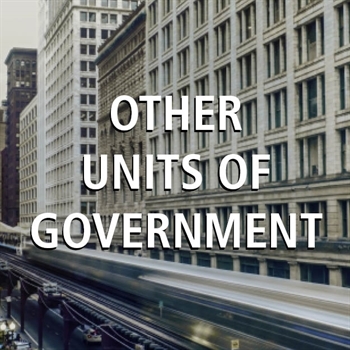Additional Resources
Partners
As an independent, nonpartisan organization, MPC develops, promotes and implements solutions for sound regional growth. We work with government, grassroots and private sector partners to solve housing, transportation, land use, water, community development and finance challenges. These partnerships are vital to our efforts to ensure that our city, county, region, and state are equitable, prosperous, and sustainable.
State of Illinois
Transform Illinois
MPC co-founded and co-leads Transform Illinois, a coalition of government officials and civic organizations committed to securing new statewide tools that will improve the effectiveness of government service delivery. Grounded in rigorous analysis and stakeholder outreach, Transform Illinois is co-led by DuPage County Chairman Dan Cronin and has strengthened MPC’s partnerships with the Better Government Association, the Civic Federation, the League of Women Voters and others.
Learn More
Transportation for Illinois Coalition
Maintaining its role as the transportation hub of the nation is a vital economic strategy for Illinois. Since its inception as a state, Illinois has relied on its geographic location and a strong infrastructure system to ensure its economic vitality. However, challenges to the quality and capacity of the Illinois transportation system are extensive and rising. The Transportation for Illinois Coalition (TFIC) was organized in order that the many interests in transportation could speak with one voice for the transportation system as a whole.
Learn More
Within and across municipalities
Local government capacity-building
In partnership with the Chicago Metropolitan Agency for Planning (CMAP), and with funding support from The Chicago Community Trust, MPC released a strategy paper in fall 2017 on threats to municipal capacity. Now, MPC, with CMAP and the Metropolitan Mayors Caucus, are initiating a transformative effort to put these strategies into action.
MPC’s unique position at the intersection of the public, private and civic sectors—with access to experts in engineering, law, finance and public policy—provides the breadth of perspectives and relationships that this complex task requires. Our initiative consists of three components:
• Service Sharing and Consolidation: Shared services across local governments can save money, reduce inefficiencies and improve service quality—but negotiating complex shared service or consolidation agreements would strain many cash-strapped communities. MPC will help local governments build trust with neighbors, provide advice on the thorny details of intergovernmental agreements, and involve residents in shaping more efficient solutions.
• Training and Network-Building: Local governments benefit greatly from guidebooks, best practice collections, trainings and assistance with staffing collaborative efforts. MPC and partners will create opportunities for elected leaders, staff or citizen commissions to master topics like managing a water utility, working with neighbors on flooding solutions or planning for future housing needs. Specific local projects will inform a Service Sharing 1-2-3 guide for local officials.
• Intensive Capacity Building: Some local governments serving low-income areas need long-term, comprehensive support to reverse decades of decline. MPC and its partners will deliver a customized multi-year program that includes embedded staff, pro bono and contracted professional services, and targeted training and skill development for staff and elected officials. Local governments that express interest will be carefully vetted, with initial engagement focused on trust-building and assessing needs and opportunities for growth. While resource and staff intensive, these “deep dive” efforts will create lasting change in fiscally stressed communities, resulting in more effective governance, higher quality services, and a lower long-term taxpayer burden.
Learn More
City of Chicago
Vote Equity
The Vote Equity project allows Chicagoans to contribute to and explore ideas on how to transform government to build a city that works better for all of us. The top priorities, generated from a community engagement process and submissions from Chicago residents from every ward, are grouped within the following categories: Education, Safety and Justice, Community Development, Health, Housing, and Government Reform. Among the organizations that developed this initiative are Brighton Park Neighborhood Council, Chicago United for Equity, Grassroots Collaborative, Generation All, Metropolitan Planning Council, and UIC's Institute for Policy and Civic Engagement.
Learn More
Elevated Chicago
Elevated Chicago launched in 2017 to present collaborative, community-led solutions to neighborhood displacement and inequities using an underutilized asset: our public transit system. Historically, trains have connected people to places; the cohort of organizations and partners leading this initiative believe transit can also can connect people to ideas, innovations, and capital, both within and outside of their communities. With 145 train stations and 129 bus routes serving nearly every neighborhood, the Chicago Transit Authority (CTA) provides an unmatched opportunity to build a different city by leveraging its stops and hubs as assets that can connect communities. Our work has started around seven CTA train stations, in partnership with community-based, city-, and region-wide organizations.
Learn More
Aldermanic Candidate Webinars
This election season in Chicago featured an unprecedented number of aldermanic candidates. To equip these candidates with the facts they need to tackle these issues, MPC hosted a webinar series on the systemic trends, changes, and upcoming issues facing the city.
And because this information is also relevant to those who aren’t running for office, we wanted to share these webinars widely. Click on the videos below to check out these valuable resources.
Equity and Demographic Change in Chicago
With Daniel Cooper, Shehara Waas and Marisa Novara
Quick links:
Essential Infrastructure: Water and Transportation
With Audrey Wennink and Danielle Gallet
Quick Links:
1:55: Audrey Wennink, Transportation overview
22:20: Danielle Gallet, Water overview
41:12: Q&A
Development for the People: Housing, Community Development, and Land Use
With Marisa Novara, Kendra Freeman and Christina Harris
Quick Links:
2:04: Christina Harris, Land Use overview
14:40: Marisa Novara, Housing overview
26:17: Kendra Freeman, Community Engagement
44:10: Q&A
Contact Us
If you have any questions or need additional information, please contact:
MPC 2019 Policy Priorities
Click on each button to jump to the other sections of MPC's 2019 Policy Priorities



